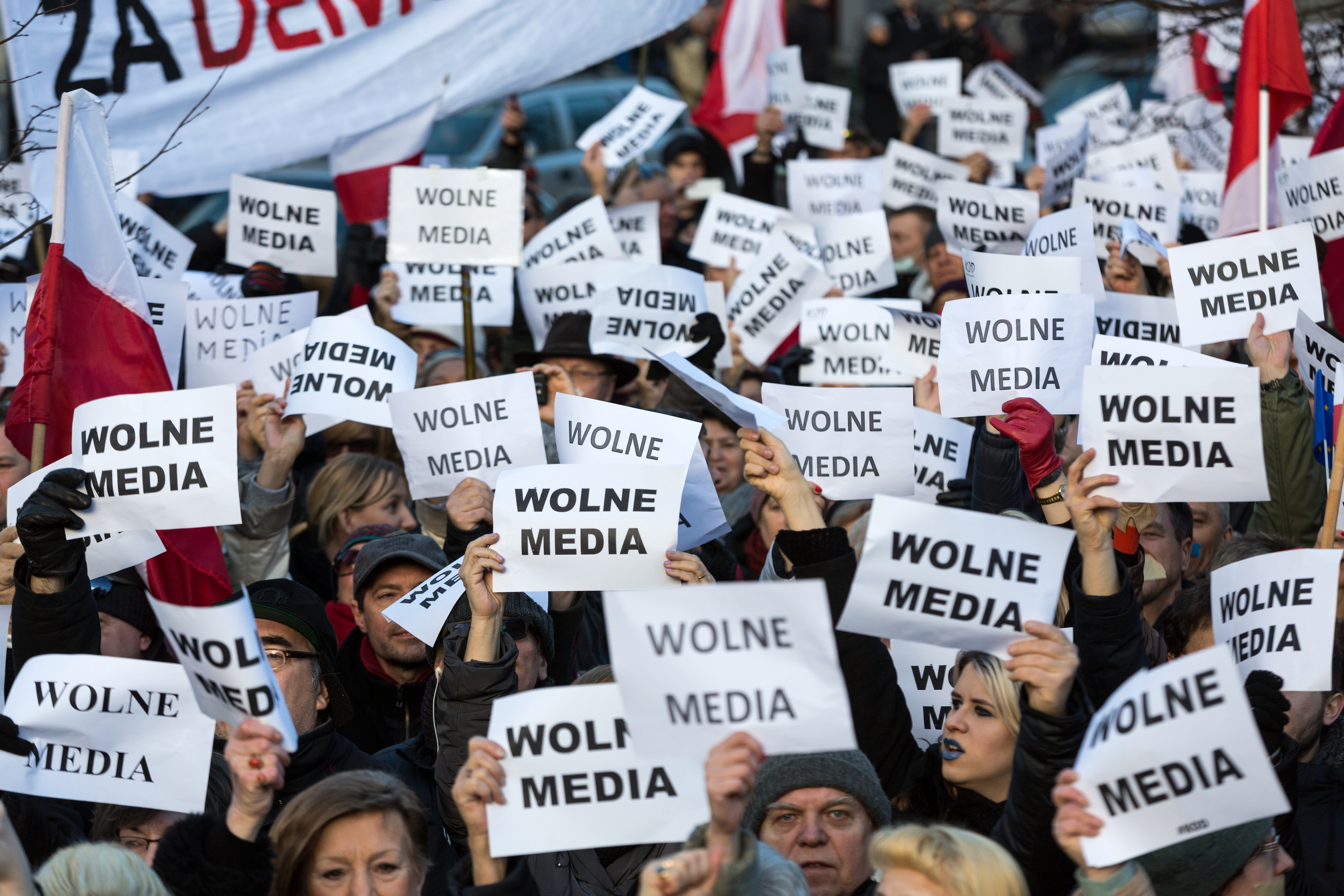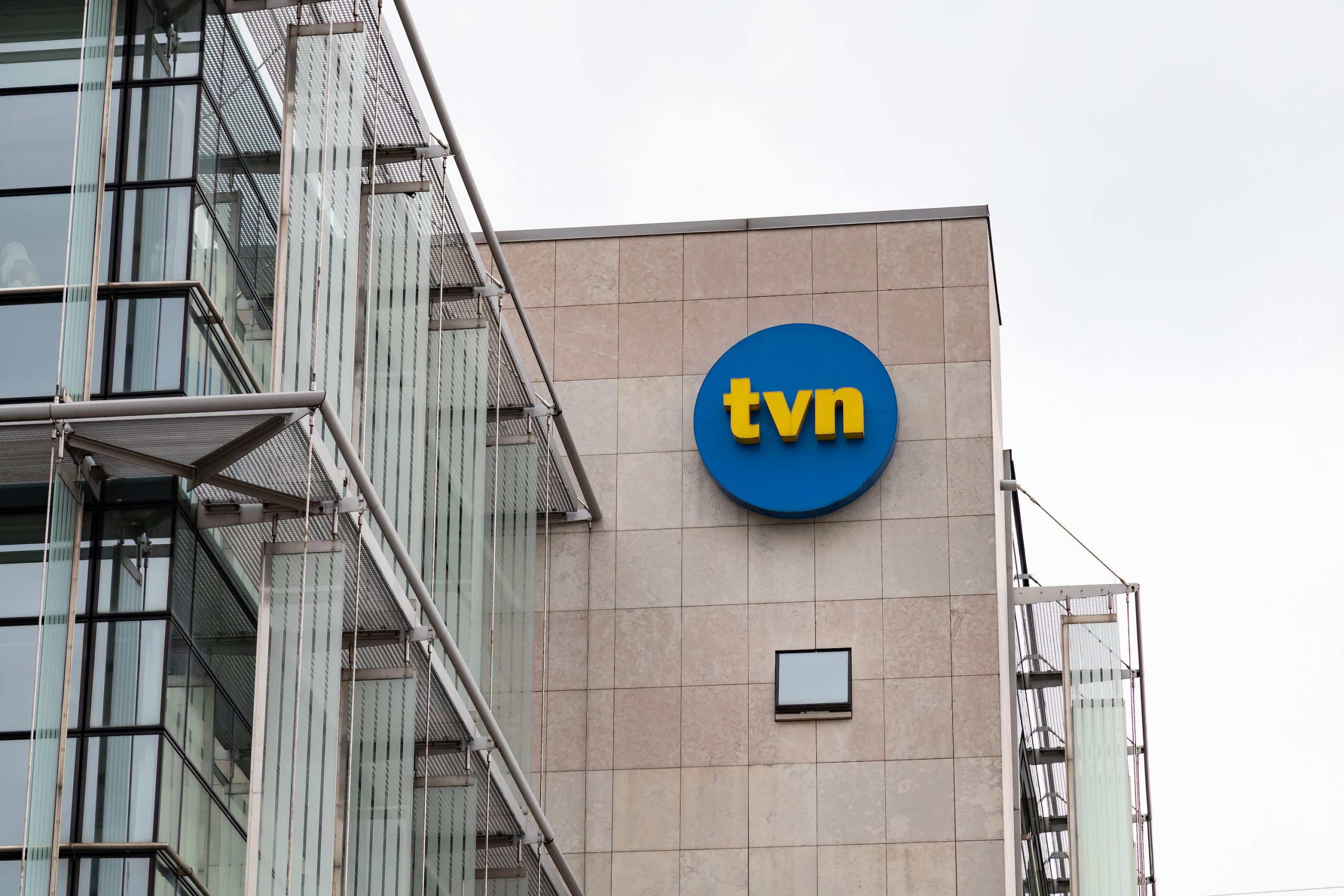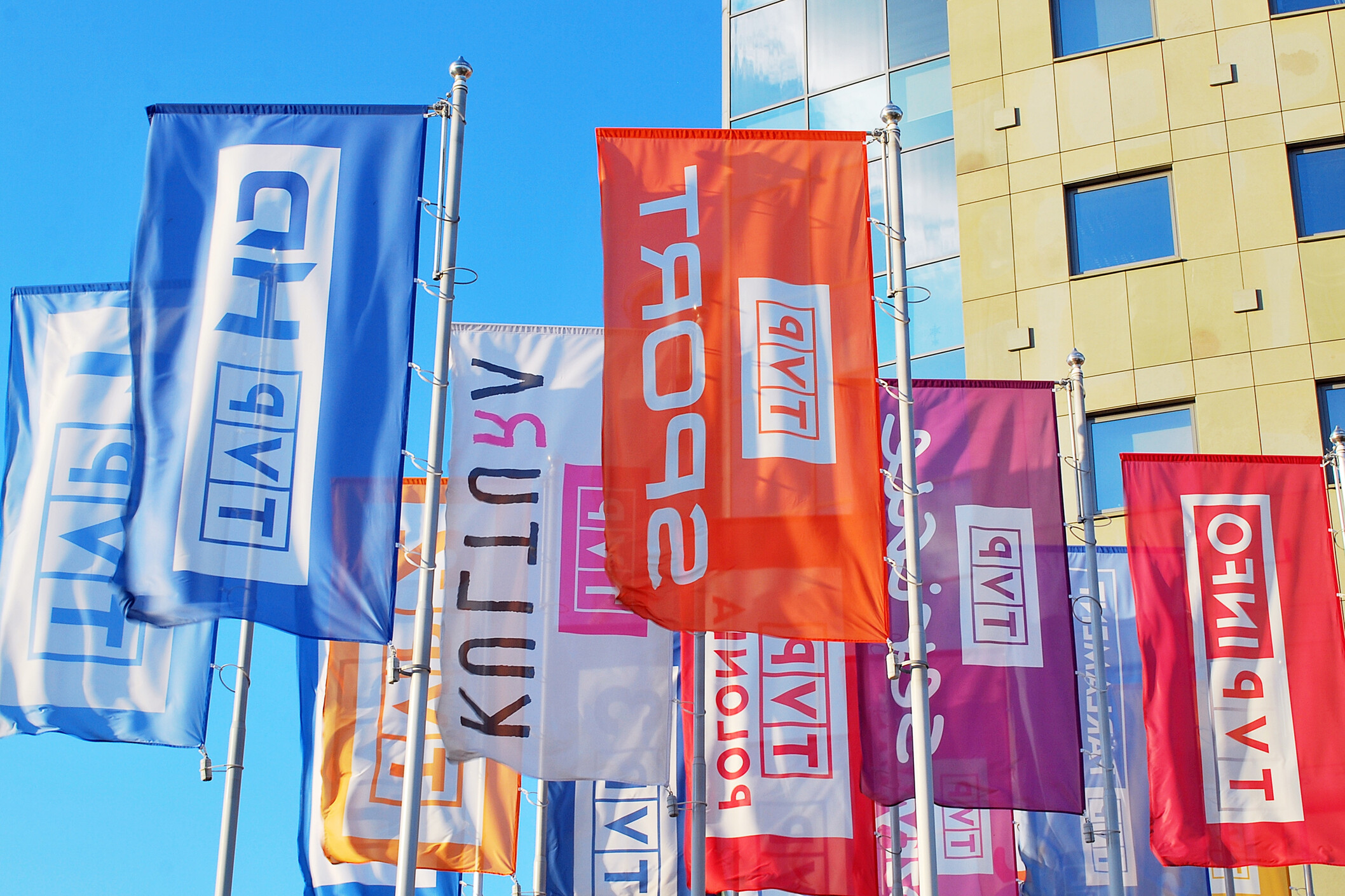Focus On Poland: Pressure on independent media
23rd May 2023
Despite an improvement in press freedom according to RSF, Poland’s media continues to suffer under the PiS government, while the state broadcaster is given greater prominence.

Poland’s media is made up of influential independent media like TVN, the national broadcaster, Telewizja Polska (TVP) – which has been described as “mouthpieces for government propaganda”– remains one of three largest networks that dominate around the nation along with TVN and Polsat.
Government-influence over state-controlled Polskie Radio has recently come under scrutiny, after one of the organisation’s networks, Radio Szczecin, ran a report revealing details that made a victim of a paedophile crime easily identifiable publicly and led to the victim committing suicide. PiS was blamed because the victim was the son of an opposition MP. Radosław Sikorski a Polish MEP and former cabinet minister, told The Guardian that operations like these were “planned … and routinely used to destroy political competitors.”
According to International Press Institute (IPI) Poland continues to remain a country where people are exposed to a plurality of voices, different opinions and views from a variety of sources giving a variety of information from independent media. However, despite this, the government has continued to pursue independent media through a variety of methods.
Reporters Without Borders (RSF) most recent World Press Freedom Index showed improvement for Poland, moving up from 57 to 66,, the first increase in eight years. But this report comes at a time when the government continues to exercise a stranglehold on the media.
Over the last few years since the Prawo i Sprawiedliwość (PiS) came into power, they have increased their influence over the country’s public service media (PSM). President Andrzej Sebastian Duda and his political party PiS modified the Polish Press Law established in 1984 which regulates all media, making changes to Poland’s constitutional court to exert more control over the media and most especially PSM.
“IPI is concerned that this decision by the KRRiT chairman represents a disproportionate and discriminatory application of the Broadcast Act which penalizes a media outlet for exerting its right to free opinion on a matter of public interest.” – Scott Griffen, Deputy Director of IPI
Government control over the media
According to the BBC, in 2016, the President, Andrzej Duda signed controversial laws that gave the government the authority to appoint the heads of public TV and radio, as well as nominate civil service directors.
In 2015 – the year PiS came into power – legislation was introduced compromising the role and responsibilities of the National Broadcasting Council (KRRiT). Under Poland’s constitution, KRRiT regulates broadcast media and oversees public radio and television. The new move made by PiS terminated KRRiT’s board members shifting responsibilities for management and appointment of public media personnel to the treasury minister and appointing PiS government sympathisers.
This has continued to the present. A recent example of the government’s growing power of the media has been KRRiT’s PLN 80,000 (€17,680) fine on TOK FM. TOK FM allegedly broke broadcast law during an interview broadcasted in June 2022. However, the fine was given 10 months after the broadcast. KRRiT’s chairman Maciej Świrski – an ally of PiS – justified the fine and claimed the language used on TOK FM had breached Article 18(1) of the Polish Broadcasting Act by “promoting illegal activities, views and attitudes contrary to morality and social good, and containing content inciting hatred and discriminatory content.”
However, the Deputy Director of the International Press Institute (IPI), Scott Griffen said, “The opinion expressed by the journalist during the show clearly does not meet the threshold for the serious violations alleged. On the contrary, IPI is concerned that this decision by the KRRiT chairman represents a disproportionate and discriminatory application of the Broadcast Act which penalizes a media outlet for exerting its right to free opinion on a matter of public interest.”
Read more: Proposed law set to boost prominence of controversial public broadcaster
Such fines are cause for deep concern, most especially with a regulatory body that continues to be under the influence of government with the power to make decisions concerning media regulation and licence provision. TOK FM’s current ten-year licence expires in November 2023.
The government has previously demonstrated its attempts to capture the media. In 2021, a controversial media reform bill targeting Discovery-owned TVN24; the country’s most watched news channel. The network had always been critical of the government and this law set out a new path for a those more in alignment with the PiS government or other state-owned companies to take over ownership of TVN and prevented companies from outside the European Economic Area from holding a controlling stake in local media companies.

The law was eventually vetoed by President Duda, but ssuch show the attempts to curb media freedom and reduce the plurality of opinions and information the public receive, all things essential for a democracy. Measures like this taken by PiS are not unprecedented. Since 2015, they have embarked on a process of media ‘Polanisation’, handing ownership of media houses over either to private individuals with associations to the government, or to state-owned enterprises. For example, in 2020, the regional newspaper group Polska Press was taken over by state-owned energy company PKN Orlen.
But there are other methods being used by the government to undermine independent media.
Legal Harassment against the media
The government has made full use of Article 212 of the Polish criminal code which allows for the possibility of imprisonment or a fine for defamation of individuals, groups or institutions. Such tools that restrict freedom of expression are known as SLAPPS (Strategic Lawsuits Against Public Participation). They are effectively used to discourage journalists from talking about certain topics and have only increased since PiS came into power in 2015, according to the statistics of the Justice Ministry that were made available to BIRN.
The Polish investigative journalist Wojciech Ciesla told BIRN, “It’s a very handy club that you can beat the media with. If you have something behind your ears and a journalist reports it, as a politician or public figure you can simply claim it’s all untrue and sue them using [Article] 212.”
Strengthening TVP’s prominence while weakening Private broadcasters
In a move that was seen by some as a way of PiS strengthening their position in preparation for the November 2023 elections, the government has recently adopted a bill that compels Pay TV operators to put five TVP stations on the first five buttons of the remote controls. As a consequence, commercial broadcasters Polsat, TVN, TV4 and TV Puls have been removed, thus reprogramming the remote controls of millions of TV viewers in Poland. This strategic move by PiS has been designed to ensure their agenda remains at the centre of the most popular media offerings, easily accessible for millions.
The bill attracted criticism, however. “The proposed regulations are a revolution in the rules of the broadcasting market and a blow to diversity, choice and access to rich content in Polish, which will not only affect broadcasters, operators and creators, but above all Polish viewers,” said the Polish Chamber of Electronic Communications.
Even as Poland continues to remain a country exposed to a variety of information from the media, the government continues to impose its influence on the media in a multitude of ways. It has become harder for journalists, “to select, produce and disseminate news and information in the public interest, independently” away from government influences.
Related Posts
20th December 2022
Poland: Proposed law set to boost prominence of controversial public broadcaster
An amendment to the Broadcasting Act’s…
15th February 2022
“Free society cannot exist without free media…” A round-up of the third Global Conference for Media Freedom in Estonia.
PMA CEO Sally-Ann Wilson reports from…



